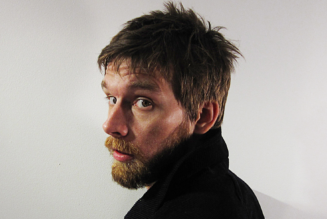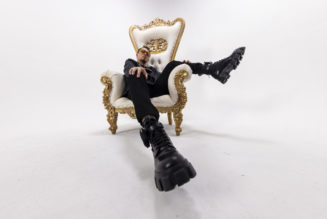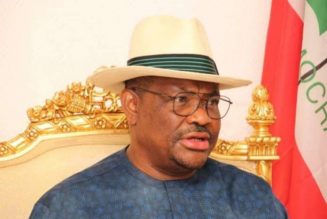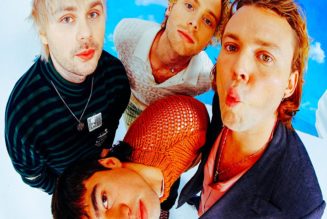
Nancy Wilson’s moment as a cute blond in a convertible wearing a mohair pink and lavender sweater and a sweet smile in the 1982 classic, Fast Times at Ridgemont High was brief but memorable. Almost 40 years later, Wilson—best known as the guitar-slinging sister in the chart-topping and multi-million-selling band Heart—looks even cuter with a post-yoga glow and her hair in pigtails, that same smile in place.
Wilson should be smiling. Her first official solo album, the recently released You and Me (1999’s low-key album of covers, Live at McCabe’s Guitar Shop, notwithstanding), debuted at Number 1 on Billboard’s Top New Artist chart, and in the Top 10 of other notable charts.
With a Rock and Roll Hall of Fame induction, a star on the Hollywood Walk of Fame and four Grammy nominations, Wilson has nothing to prove. But more than a year off the road due to the pandemic and a lot of time at home, safely in her studio, You and Me seems inevitable.
The self-produced album is a mixture of original songs and inventive covers. The originals range from the gentle-moving title track and instrumental “4 Edward,” her tribute to Eddie Van Halen, to the rabble-rousing “Party at the Angel Ballroom” featuring Duff McKagan and Taylor Hawkins and the cautionary “The Dragon” written for the late Layne Staley. Wilson brought in Sammy Hagar for her cover of Simon and Garfunkel’s “The Boxer” and tackled Bruce Springsteen’s “The Rising” and Pearl Jam’s “Daughter” (featured on Netflix’s I Am All Girls) on her own.
Wilson spoke to SPIN about her ties to the Pacific Northwest and returning to her hometown of Seattle to perform her new songs and some Heart staples with the Seattle Symphony while her husband cheerfully bangs kitchen cabinets and pantry doors in the background.
SPIN: Have you had a chance to hear the symphony arrangements of the songs?
Nancy Wilson: I just heard the first mockup of “Party at the Angel Ballroom” and I wound up in hysterics. It’s an extremely high-energy orchestra in motion. You can’t stay on “11” for an entire song. It will break too many strings. I have to put my producer hat on for these symphony parts. One big lesson for me as a musician has always been what to leave out so that you’re not talking over a moment. You want to let the moments land and then embellish them.
What was it like for you at the start of the grunge in Seattle, which came right on the tail of your biggest albums with Heart?
When we got back to Seattle after the ‘80s, we thought, “These guys are going to think we’re corporate sell-out, dinosaur poseurs from MTV.” We did big bombastic videos that came off like everything we thought those grunge-era guys were pushing against. We were really tiptoeing home saying, “Don’t hate us, don’t hate us. Maybe we’re has-beens. You guys are the cool new thing.” Because they absolutely were. Kelly Curtis — my dearest, best friend — managed Pearl Jam, back from when they were Mother Love Bone and Mookie Blaylock, introduced Ann and I to the guys from Pearl Jam, Soundgarden, Screaming Trees, Nirvana. They were really sweet to us. I guess they forgave us for the ‘80s.
Why do you feel you didn’t get lost in the excesses of music in the ‘80s?
We were really cautious because we were determined to do a good job. We were not going to flake out and be five hours late or cancel like a lot of the bands at the time. We were trying to keep ourselves on time and on point. No matter how bad you felt the next day, you sucked it up and you did it anyway. That comes from being from military training [her father was a Marine] and being doggedly determined. And, there’s a pride issue, a professionalism issue. We took that really seriously.
Your mother was involved in Heart’s activities, wasn’t she?
When Heart became popular I got her a beautiful house on the lake with my new money and she said she wanted to work and pay for it so I made her the head of the fan club. This was before tech so she was answering fan letters on Heart letterhead with an assistant. They’d have lunch once a week and talk about the fans. Even after she was gone, some people would turn up at shows with these letters she had personally written to them.
You have always been credited as being an exceptional guitar player, particularly by your male counterparts, including Eddie Van Halen.
He was a sweetheart. We were keen on each other, just as friends, because we were both different. We were not the usual kind of guitar people in the rock world. Both of us felt like novelties out there and I think we related on that level.
Your confident performances helped make the presence of strong female musicians a commonplace thing and gave the impression that music was an equal opportunity space.
Being as young as we were when we started out was really key to feeling like no matter what our gender was, it was okay to be competent with the rock job. On the last few big Heart tours, these women come to the meet-and-greets and it’s such an emotional reveal. So many of them say, “I would have never picked up a guitar if I hadn’t seen you do that,” or “I wouldn’t have been brave enough to try it.” A lot of people were not at all encouraged to think they could do that. That still surprises me to this day. So many women have such low self-esteem or lack the confidence to make a big stand about what their bliss is all about.
It feels like the ground you gained for women got lost along the way.
In the ‘80s, there was a setback for women because there was such an objectifying atmosphere around the imaging. There’s a cool documentary I got to be a part of called I Want My MTV about how it got more and more and more hyper-sexualized and less and less cool. It set women back at least 10 years. We were ready to be mind-expanded and come into a whole new era where we were strong and big and out front. You see it now, a bunch of cool girls doing their songs and writing and playing and being the leaders, like Phoebe Bridgers and even Taylor Swift. That’s beautiful work. The climate is now correct for women to step up to the plate and take hold again.
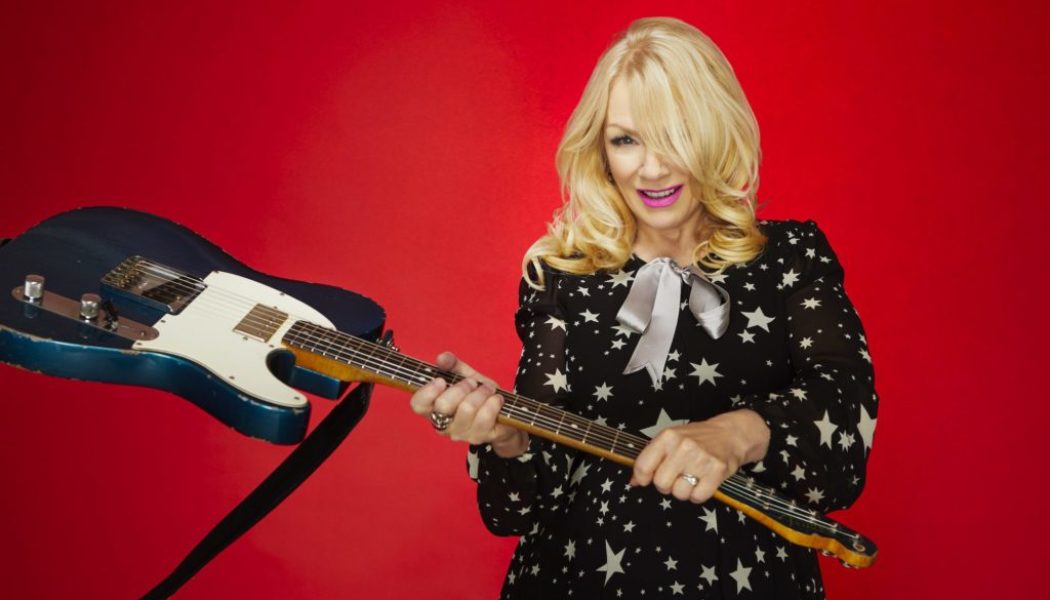

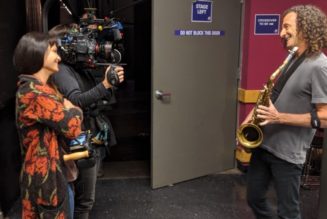
![Bob Moses On Finding Light In the Darkness and New Concept EP “Desire” [Q&A]](https://www.wazupnaija.com/wp-content/uploads/2020/09/bob-moses-on-finding-light-in-the-darkness-and-new-concept-ep-desire-qa-327x219.jpg)
